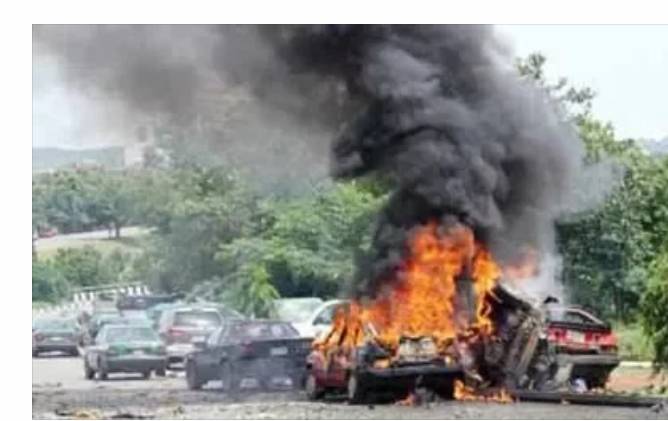Today in History: Bomb Explosion Kills Over 40 Civilians and Soldiers in Nigeria
On this day, December 4, 2014, tragedy struck in Nigeria as a devastating bomb explosion claimed the lives of more than 40 people, including soldiers and civilians. The attack occurred in the volatile northeastern region of the country, which was already reeling from years of insurgency led by the militant group Boko Haram.
The explosion took place at a crowded marketplace in the town of Maiduguri, the capital of Borno State. Witnesses described the scene as horrific, with buildings reduced to rubble and the air filled with smoke and screams of anguish. The bomb, believed to have been planted in a vehicle, was detonated during peak trading hours, ensuring maximum casualties.
A Devastating Blow
Among the victims were members of the Nigerian Armed Forces, who had been stationed in the area to combat Boko Haram’s relentless attacks. The soldiers were on a routine patrol when the bomb went off, catching them and unsuspecting civilians in the deadly blast. Rescue teams worked tirelessly to recover bodies from the debris, but the scale of destruction made the process agonizingly slow.
Eyewitnesses recounted the chaos that ensued after the explosion. One trader, who narrowly escaped the blast, described seeing “mangled bodies and blood everywhere.†Many victims were women and children, who had gathered at the market to buy and sell goods.
Boko Haram's Reign of Terror
Although no group claimed immediate responsibility, suspicion fell on Boko Haram, a terrorist organization notorious for its violent campaign to establish an Islamic state in Nigeria. The group had carried out numerous attacks in the region, targeting schools, churches, mosques, and marketplaces.
The Maiduguri bombing was part of a broader pattern of violence that had displaced millions and plunged the region into a humanitarian crisis. At the time, the Nigerian government faced mounting criticism for its inability to curb the insurgency, despite increased military efforts and international support.
Global Condemnation
The international community swiftly condemned the attack. The United Nations, African Union, and several world leaders expressed solidarity with Nigeria, calling for a united front against terrorism. Human rights organizations also highlighted the need for better protection of civilians in conflict zones.
A Turning Point?
The bombing served as a grim reminder of the fragile security situation in Nigeria and the urgent need for comprehensive solutions to address the root causes of insurgency. While the government intensified its military campaigns in response, the Maiduguri attack underscored the challenges of protecting civilians in a protracted conflict.
Today, as the world remembers this tragic event, it stands as a somber reminder of the human cost of violence and the need for resilience in the face of adversity. The victims of the Maiduguri bombing are not forgotten, and their memory continues to inspire efforts toward peace and security in Nigeria.




No comments yet
Be the first to share your thoughts!